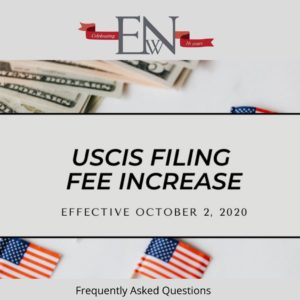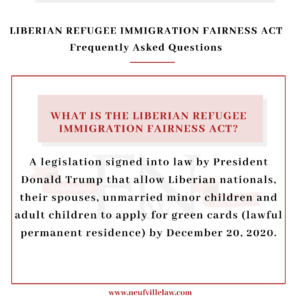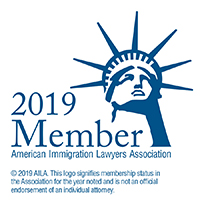On January 25 and January 26, 2017, U.S. President Donald J. Trump signed three Executive Orders on Immigration, namely the “Border Security and Immigration Enforcement Improvements”, “Enhancing Public Safety In the Interior of the United States”, and “Protecting The Nation From Foreign Terrorist Entry Into the United States”. Under President Trump’s executive actions, non- U.S. citizens, which includes refugees, asylees, nonimmigrant visa holders, and lawful permanent residents, will be subjected to closer scrutiny while in the United States and when re-entering the United States after foreign travel.
Non-U.S. citizens will need to understand the present and potential ramifications of the President’s executive actions. Since the announcement of the travel ban, the Government clarified that green card holders will not be subjected to the travel ban and two U.S. Federal District Courts issued stays or temporary restraining orders against the Government’s attempts to ban the reentry of green card holders. This document highlights the practical implications of the President’s executive actions.
FREQUENTLY ASKED QUESTIONS
Question: What is included in the President’s Executive Order “Protecting The Nation From Foreign Terrorist Entry Into The United States” signed on January 26, 2017?
Answer: The President’s Executive Action does the following:
- Suspend the U.S. Refugee Admissions Program for 120 days
- Indefinitely ban the acceptance of Syrian Refugees
- 90-day ban on Entry of Nationals of seven (7) Muslim-majority Countries, namely, Libya, Somalia, Sudan, Yemen, Iran, Iraq, and Syria. The ban does not include diplomats or individuals who are employed by multinational international organizations
- Individuals who are dual nationals may be subjected to the 90-day ban.
- This ban affects those foreign nationals with valid U.S. non-immigrant visas such as H-1B nonimmigrant visa, L-1 intracompany transferees, O-1 exceptional ability visa, and P visas.
- Screening of all immigration benefits filed in the United States, which includes, but not limited to, applications for work authorizations, green card applications, and naturalization applications
- In-person interviews for most nonimmigrant visa applicants
- Establishing biometric-entry exit
Question: What do I need to do?
Answer: If you are a foreign national or a lawful permanent resident and plan on traveling to the United States or if you plan on traveling out of the United States within the next 90-days, consider the following suggestions:
- If you are a lawful permanent resident outside of the United States, contact an immigration attorney prior to traveling to the United States.
- If you are a lawful permanent resident and a national of Libya, Sudan, Somalia, Syria, Iran, and Iraq, and outside of the United States, contact an immigration attorney prior to the traveling to the United States.
- Upon arrival in the United States, lawful permanent residents should NOT sign any forms to withdraw your admission or a Form I-407 to give up and abandon your lawful permanent resident status (Green Card). Do not agree to give up your Green Card under any circumstances, without asking to speak to your attorney.
- If you are a national of Libya, Sudan, Somalia, Syria, Iran, and Iraq and you are outside of the United States, you will face issues at the airport. No matter what happens upon your arrival to the United States, do NOT sign any forms to withdraw your admission.
Question: What does the President’s “Border Security and Immigration Enforcement Improvements” Executive Order signed on January 25, 2017, purport to do?
Answer: The following are set to be implemented with the President’s Executive Actions:
- Individuals apprehended at the border will be detained pending the outcome of their cases
- Detention facilities will be built at or near the land border with Mexico to house individuals apprehended
- Immigration Judges and Asylum Officers will be assigned to those immigration detention facilities to process and adjudicate immigration petitions
- State and local law enforcement agencies will be empowered to perform federal immigration functions, i.e. your local police officer will be authorized to determine whether a person is in lawful immigration status or not
Question: What does the President’s “Enhancing Public Safety In The Interior of the United States” Executive Order signed January 25, 2017 do?
Answer: The removal of the following individuals from the United States will become a priority:
- Those who have been convicted of ANY criminal offense
- Those who have been charged with ANY criminal offense, even if those charges are still pending
- Those who have committed acts (but have not been convicted or charged) that constitutes a chargeable criminal offense
- Those who have engaged in fraud or willful misrepresentation in connection with any official matter or application before a governmental agency
- Those who have abused any program related to the receipt of public benefits
- Those with final orders of removal
- Those who in the judgement of an immigration officer, pose a risk to the public safety or national security of the United States
- If you are not a United States citizen or green card holder, Government agencies will be allowed to share information obtained from you with other agencies.
In light of the Executive Order on Immigration consider the following suggestions:
- Make copies of evidence of your lawful immigration status in the United States and keep the copies in safe location. Documents include your green card, a complete copy of your passport (all pages including blank pages and your nonimmigrant visa stamp) and/or any approval notices.
- Make sure you let at least one person know where those important documents are kept. If you have an attorney, ask you attorney to keep a copy of your documents.
- If you are a lawful permanent resident of the United States, make sure you do not stay of the United States for more than 180 days. If you plan on being out of the United States, as a lawful permanent resident, for more than 180 days immediately contact your attorney.
- Review your federal and state tax returns to make sure that they were properly filed, for example make sure that your marital status and number of household dependents were accurately represented, i.e. head of household versus married filing separately. If necessary, speak with a tax professional to amend your taxes.
- If you are not a United States citizen and have pending criminal matters, or have been convicted in the past, immediately contact an immigration attorney.
Disclaimer: The materials available at this web site are for informational purposes only. You should contact your attorney or contact Attorney Edward Neufville, III, to obtain specific legal advice with respect to any particular issue or problem. Use of and access to this Web site or any of the e-mail links contained within the site do not create an attorney-client relationship between Law Office of Edward W. Neufville, III, LLC and the user.

















No comments yet.